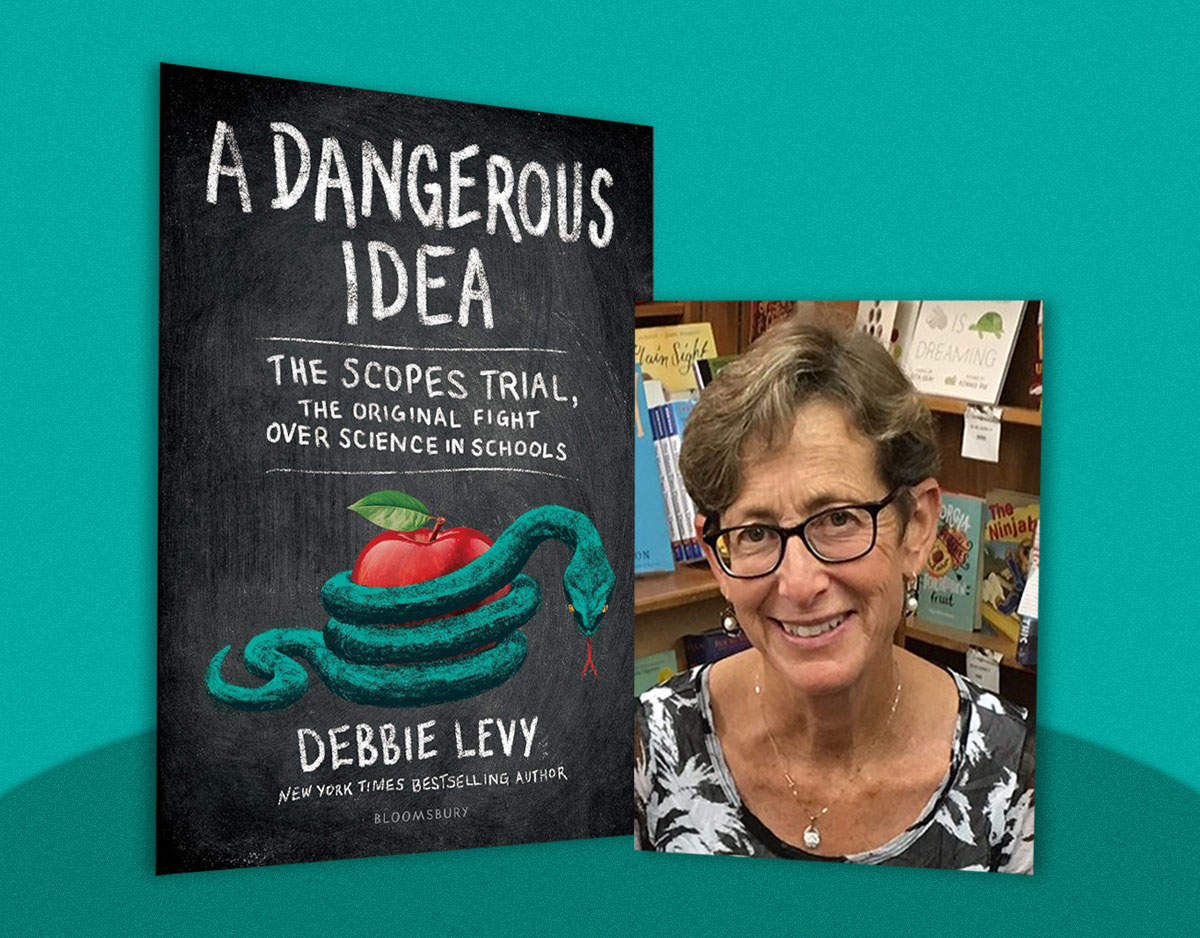History Lesson: New Middle Grade Book Explores Twists and Turns of Scopes Trial
A Dangerous Idea marks the 100th anniversary of the Scopes Trial, which involved a debate over free speech, education, science, and religion with larger-than-life characters and less-than-pure motives.

After writing two children’s books about Ruth Bader Ginsburg, author Debbie Levy was searching for another story about law to share with kids. She found it—and so much more.
The story of the Scopes Trial—which Levy documents in her new book, A Dangerous Idea: The Scopes Trial, the Original Fight over Science in Schools—is one that highlights the debate over free speech, education, science, and religion with larger-than-life characters and less-than-pure motives. On the surface, the 1925 case was about the arrest of a teacher who taught evolution to high school students in Tennessee. But nothing is straightforward or as it seems when it comes to Scopes.
“What made this book fun to write—and I hope will make it fun to read and maybe to teach, or at least
to talk about—is it’s full of surprises,” says Levy.
With the trial’s 100th anniversary this year, Levy uncovered the fascinating details and, often, wild truth about the town, teacher, and trial. She also discovered that the story contains many echoes of today’s political and educational climate: ridiculing science and scientists, adult fear and response to what children are learning from books, and the lasting impact of trying to control what children are taught in classrooms.
“I thought kids would be interested in reading something about how adults can really lose it when they’re worried about what kids are going to learn or what they’re going to read,” Levy says. “There’s a lot of humor in what goes on. You’re also crying at the same time. It’s just a little nuts.”
In more events that mirror the current landscape, the story of the trial also shows people who wanted to set up the public school system as the center of a particular type of theology, how a circus environment can overtake a news event and noise can distract from real problems, and the power of a “charismatic leader.” In the Scopes Trial, that person was politician William Jennings Bryan, who was the prosecutor.
“I wouldn’t call him the villain of my story, but he did a few bad things,” says Levy. “He had some really bad ideas, but he was very entertaining. If he were on Twitter today, he would have more followers than Elon Musk.”
In the same way, the teacher who was arrested—John Scopes—wasn’t exactly a hero of the cause of free speech and teaching science, nor was he simply a pawn in one town’s search for publicity and the ACLU’s desire for a defendant so the organization could push a First Amendment case to a higher court. (At the time, the First Amendment didn’t apply to state laws.)
Levy believes there are many entries into important conversations in the middle grade title. There are lessons in misinformation and disinformation, and American journalism at the time; how false narratives can take hold (in this case, that teaching evolution was teaching kids not to believe in God), as well as white supremacists’ role in being opposed to teaching about, and believing in, evolution.
The author hopes that her book will also help young readers see the connection of the past to the present.
“You could put a lot of things under the heading ‘History would like a word here,’ ” she says. “In other words—this is often attributed to Mark Twain, although it’s unclear if he said it—‘History may not repeat itself, but it rhymes.’
“If you think you’re living through something that’s never, ever happened before, chances are something like it has happened before, which of course leads to the question of, ‘Well, then does the history tell us how to respond? What does the history tell us?’ I think, unfortunately, usually the answer is history doesn’t really have those clear answers, but it can inform us.”
RELATED
The job outlook in 2030: Librarians will be in demand
The job outlook in 2030: Librarians will be in demand
ALREADY A SUBSCRIBER? LOG IN
We are currently offering this content for free. Sign up now to activate your personal profile, where you can save articles for future viewing






Add Comment :-
Be the first reader to comment.
Comment Policy:
Comment should not be empty !!!